“May the light they light today, illumine our hearts throughout our lives,” said a participant, following a traditional lamp-lighting ceremony to open the youth conference in Panchgani, in the Indian state of Maharashtra, from 4 to 6 October. There, in the New Era High School, overlooking the Krishna River and with the beautiful Western Ghats mountain range in the background, 1,200 youth from the states of Maharashtra, Goa, and Gujarat gathered to consult on the ways they could assist in the social and spiritual development of their villages and neighbourhoods.
Sharing a common desire to bring about constructive change and a capacity for meaningful service, the participants gathered in large and small workshop groups according to locality and spread across the spacious school grounds to study the conference materials. They consulted on the nature of the conversation around community building, at the heart of which is the Teachings of Bahá’u’lláh, and the youth thought of ways to share His vision for a united world with others. In this connection, they recognized that the Word of God is a vital aspect of community building. One participant commented, “To bring about change our words might not have so great an influence, as would the Word of God on the hearts and minds of others.”
“There is a difference between balance and coherence. A balanced life is not necessarily a coherent life. It is not necessary that we have balance in all that we do, though being thoughtful of our time and energy is important. We must be aware that service also requires sacrifice.”
A participant at the conference
Participants reflected on the implications of leading a life of selfless service, one in which the various dimensions such as studies, work, and family are understood as part of a whole, each strengthening and complementing the others. Closely related to this is the concept of balance, in which equal time is given to the various areas of one's life. One participant said, “There is a difference between balance and coherence. A balanced life is not necessarily a coherent life. It is not necessary that we have balance in all that we do, though being thoughtful of our time and energy is important. We must be aware that service also requires sacrifice.”
In the centre of the grounds a beautiful and colourful pandol was erected and draped in fabrics of white, gold, and purple for the plenary sessions each morning and evening. Groups of youth shared the plans they had made to be implemented upon returning to their communities, which included collaborating with increasing numbers of younger youth, offering classes for the spiritual education of children, and engaging more of their peers into the process of bettering their neighbourhoods and villages.
In the evenings, youth shared creative presentations illustrating themes in the conference materials. This included skits, songs, music, and poetry, all expressions of the insights gleaned from the days’ study and consultation. One young participant explained that before the conference, she had felt shy to speak in front of others. Encouraged by the environment of loving friendship and mutual support, she was able to share, during the evening plenary, a poem she had written about walking together on the path of service.
From the moment the participants entered through the school gates, decorated with marigolds, its walkways lined with colourful rangoli, the atmosphere reflected the joy, enthusiasm and consecration of the youth from the region, many of whom had prepared for the conference months in advance. The morning prayers in Hindi and Marathi, the soul stirring melodies of the Words of God created a reverent atmosphere. The collective singing during breaks, the late night discussions with friends on the possibilities now open before them to contribute meaningfully to change, the hope transformed into determination to walk with others on a path of service throughout their lifetime, contributed to an environment in which friendships were easily forged and strengthened. It was clearly evident that a vision of the society-building powers inherent in Bahá’u’lláh’s Teachings, and the role that young people can play in its realization, was undoubtedly formed.
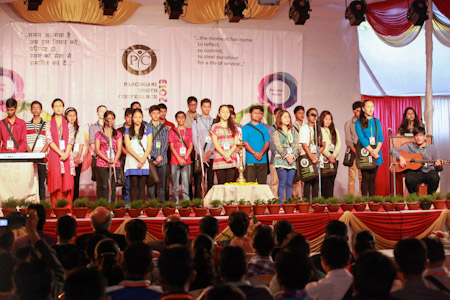
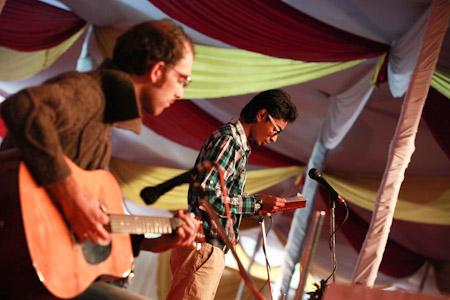
Devotional programmes at the beginning of each session set a reverent and reflective atmosphere for the consultations
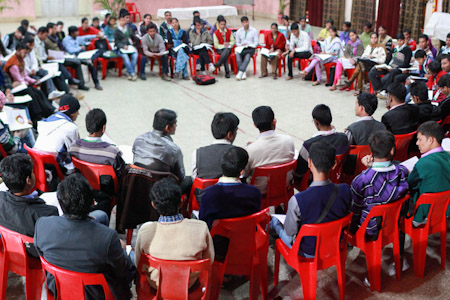
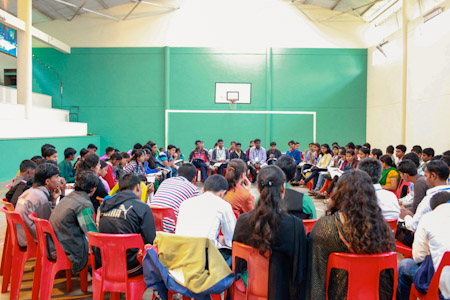
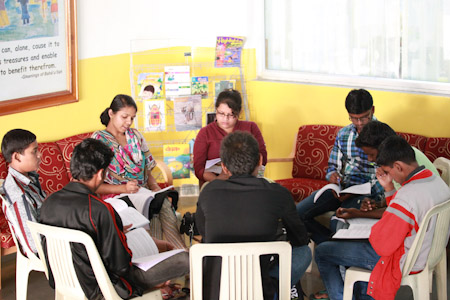
Discussions began in large groups and then broke into smaller ones in order to explore the concepts in light of their local realities
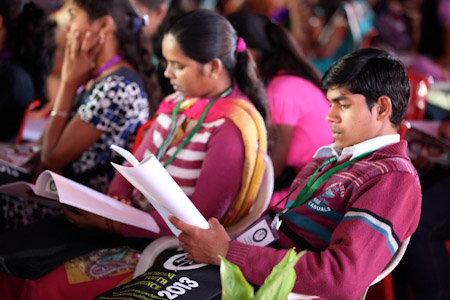
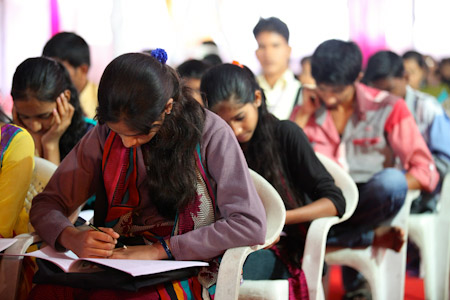
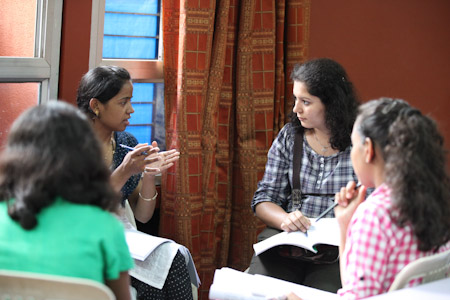
Participants between the ages of 15 and 30 discussed how they can assist those younger than themselves
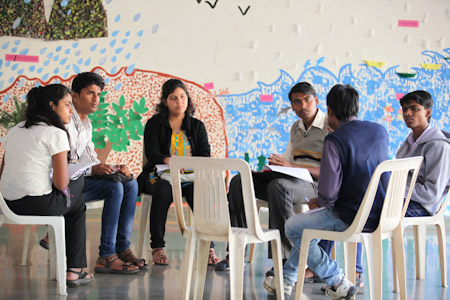
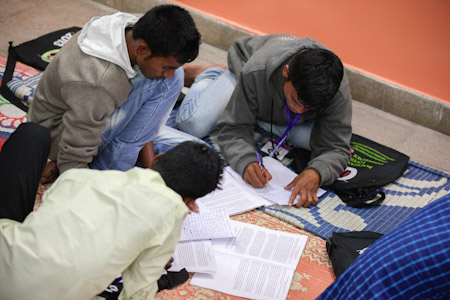
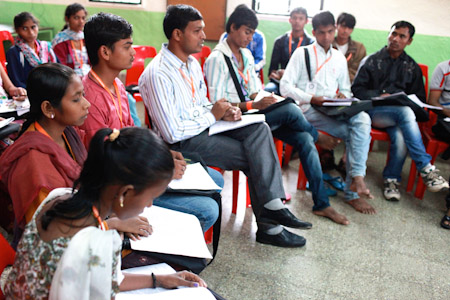
The conference was an opportunity for the participants to reflect together about the contribution they can make to the spiritual and social development of their communities
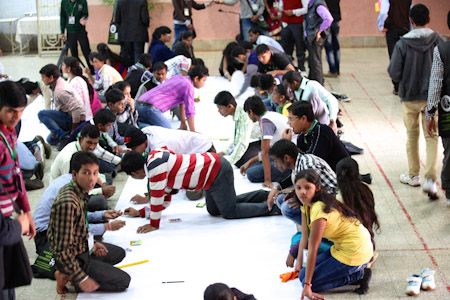
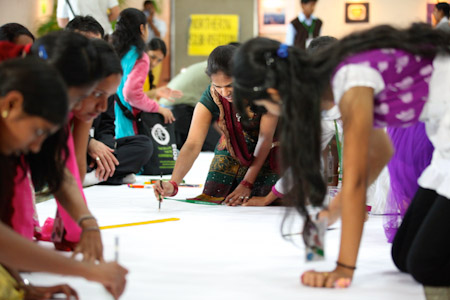
Youth worked together on creative presentations that enhanced their understanding of the themes being studied
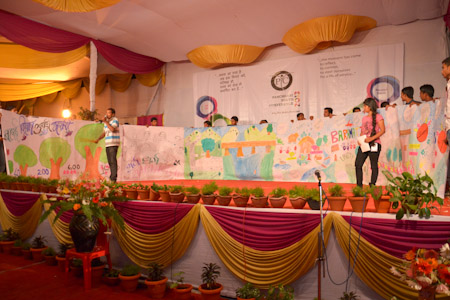
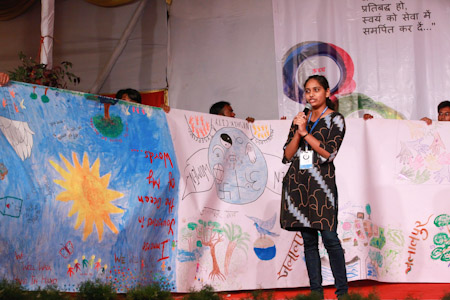
Each group found creative ways to present what they were studying in the workshops
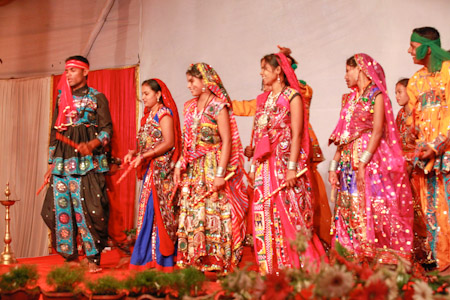
The evening arts presentations included modern and traditional cultural performances